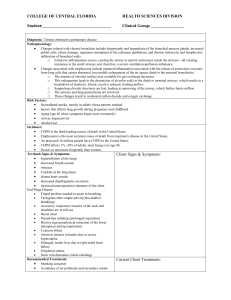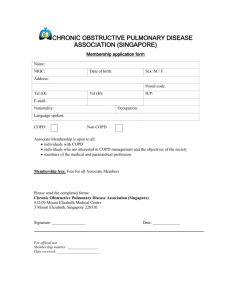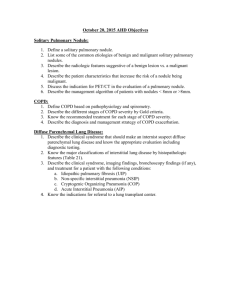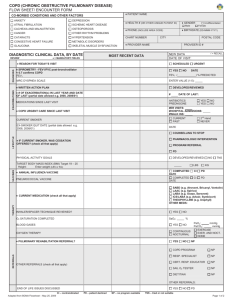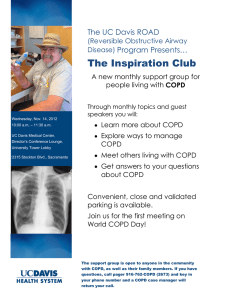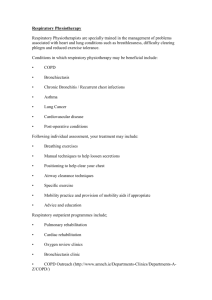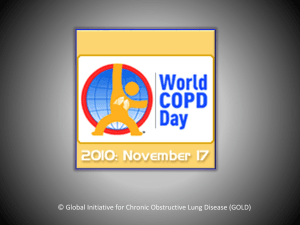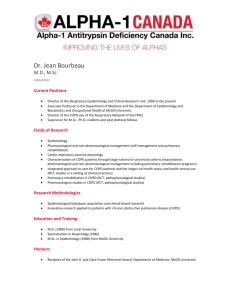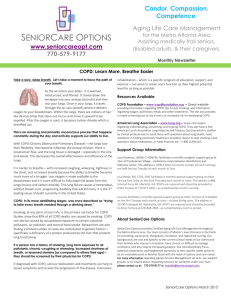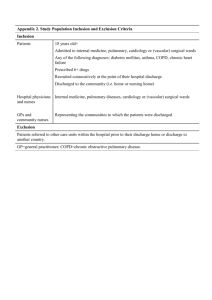Chapter 24: Answers to Assignments
advertisement
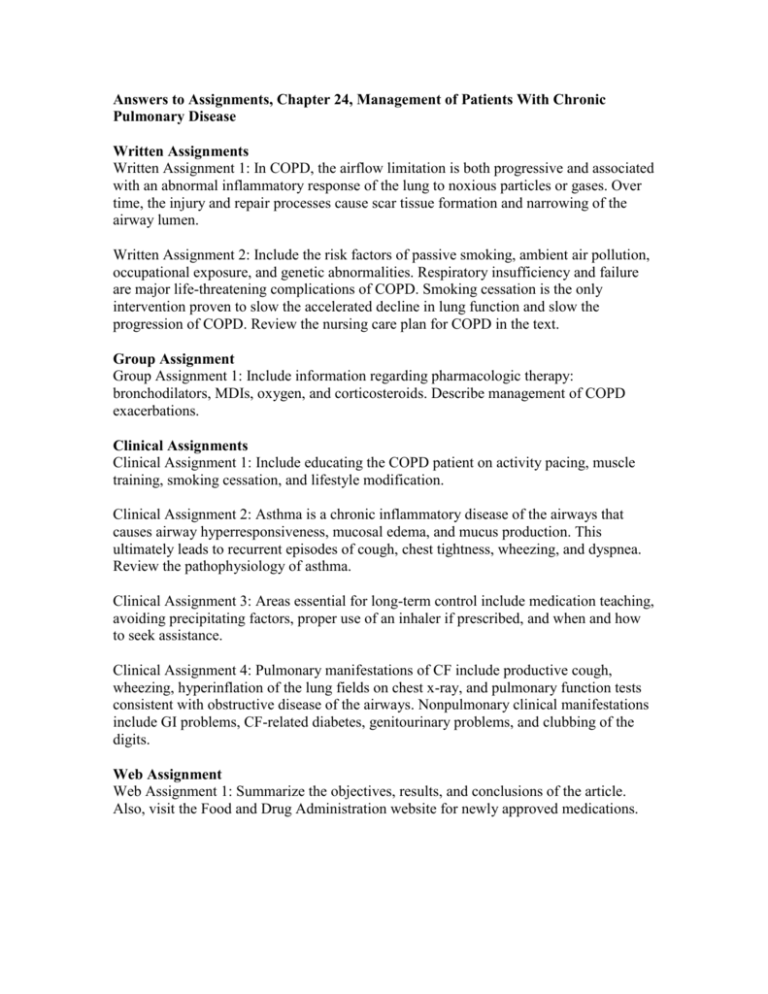
Answers to Assignments, Chapter 24, Management of Patients With Chronic Pulmonary Disease Written Assignments Written Assignment 1: In COPD, the airflow limitation is both progressive and associated with an abnormal inflammatory response of the lung to noxious particles or gases. Over time, the injury and repair processes cause scar tissue formation and narrowing of the airway lumen. Written Assignment 2: Include the risk factors of passive smoking, ambient air pollution, occupational exposure, and genetic abnormalities. Respiratory insufficiency and failure are major life-threatening complications of COPD. Smoking cessation is the only intervention proven to slow the accelerated decline in lung function and slow the progression of COPD. Review the nursing care plan for COPD in the text. Group Assignment Group Assignment 1: Include information regarding pharmacologic therapy: bronchodilators, MDIs, oxygen, and corticosteroids. Describe management of COPD exacerbations. Clinical Assignments Clinical Assignment 1: Include educating the COPD patient on activity pacing, muscle training, smoking cessation, and lifestyle modification. Clinical Assignment 2: Asthma is a chronic inflammatory disease of the airways that causes airway hyperresponsiveness, mucosal edema, and mucus production. This ultimately leads to recurrent episodes of cough, chest tightness, wheezing, and dyspnea. Review the pathophysiology of asthma. Clinical Assignment 3: Areas essential for long-term control include medication teaching, avoiding precipitating factors, proper use of an inhaler if prescribed, and when and how to seek assistance. Clinical Assignment 4: Pulmonary manifestations of CF include productive cough, wheezing, hyperinflation of the lung fields on chest x-ray, and pulmonary function tests consistent with obstructive disease of the airways. Nonpulmonary clinical manifestations include GI problems, CF-related diabetes, genitourinary problems, and clubbing of the digits. Web Assignment Web Assignment 1: Summarize the objectives, results, and conclusions of the article. Also, visit the Food and Drug Administration website for newly approved medications.
